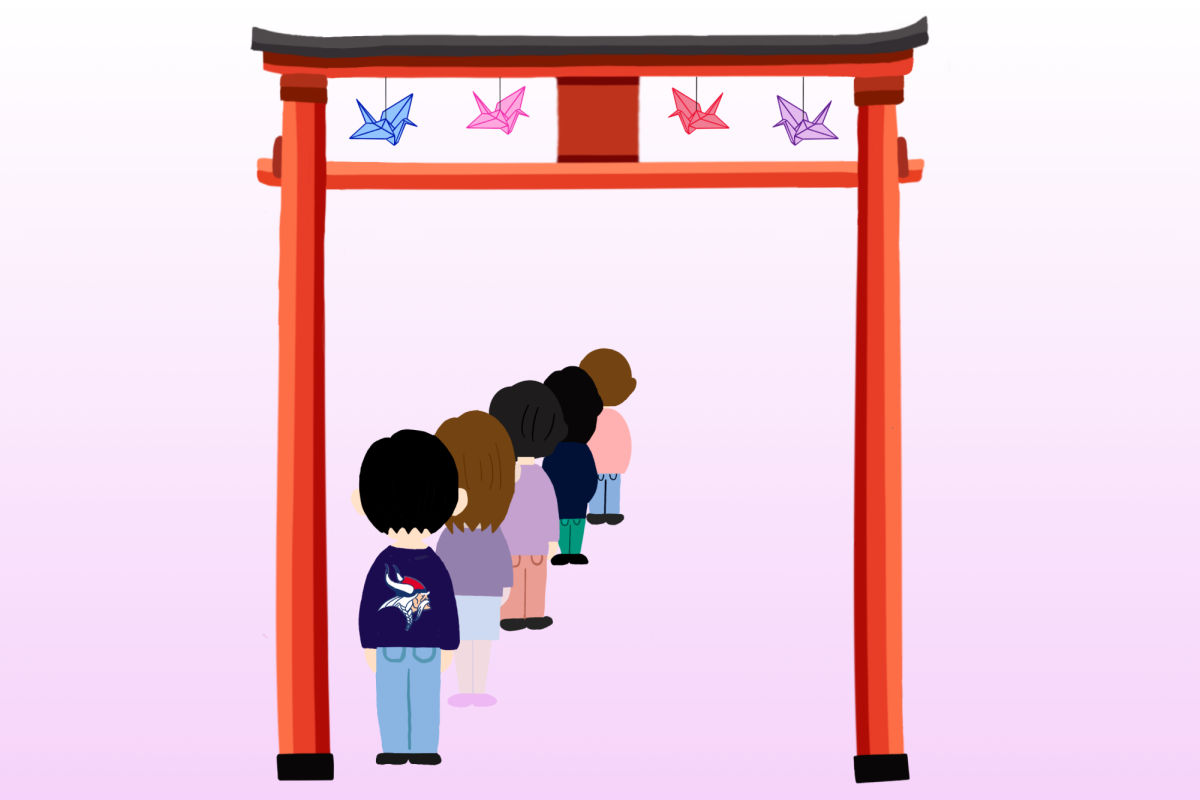The crowd erupts in cheers as the star player scores the winning goal, a scene familiar to soccer fans. Many fans are still reliving the action-packed 2022 FIFA World Cup, despite corruption, human rights violations and controversy lying just beyond the stadium. Sportswashing is a practice where governments invest heavily in high-profile sports such as soccer, golf, boxing and car racing in an attempt to divert attention away from human rights violations and political scandals, thereby attempting to improve their public image.
The 2022 World Cup in Qatar received an immense amount of attention and media coverage because of its suspense-filled games, yet Qatar’s abuse of migrant working rights and discriminatory laws toward women sparked controversy. This isn’t the only case where sports events have been held for duplicitous reasons. Mass executions, unjustifiable arrests, persecution and torture of political prisoners are on the long list of repressive actions governments try to hide through sports, with many of these issues occurring in the Middle East. By doing so, the rights and livelihood of these victims are utterly disregarded and swept under the rug. With this in mind, individuals should be selective in the sports they watch and support.
Sports connect people across the globe through the teams and players fans pride themselves in supporting, and it is a topic that transcends cultural, educational and economic barriers. What most fans don’t understand is how sports are increasingly being used as political cover-ups.
“Sports in general brings a community together, and there is a sense of unity,” sophomore and avid sports fan Isaac Huang said. “Most fans have not heard of sportswashing before, but recently, more people became aware of the abuse of migrant workers in the 2022 World Cup.”
The term “sportswashing” was popularized in 2015 after Amnesty International, an organization dedicated to fighting human rights abuses, brought attention to it. The term is derived from the terms “sports” and “whitewash” in reference to Azerbaijan using the European Games, a continental sporting event, as a method to conceal human rights atrocities in the country.
“Sports have always been and continue to be complicit in affecting our most disenfranchised people around the world,” said Michael Dao, an associate chair in the Department of Kinesiology and the Director of the Human Rights Institute at San Jose State University.
Although sportswashing is a heated topic today, the practice dates back to the 1936 Berlin Olympics. The games, held during Nazi rule, led to many boycotts in Western countries due to the discrimination and human rights violations that were happening in Germany at the time. Through hosting the games, Germany aimed to paint itself as a peaceful and tolerant country since they promised to allow Jewish athletes to compete. Yet, only one Jewish athlete competed on the German team. A few years later, Germany would kill over 6 million individuals of Jewish descent in World War II.
Throughout the past century, events like the 1978 World Cup in Argentina, the 2022 Winter Olympics in Beijing and the 2022 World Cup in Qatar show that although large sporting events result in major economic benefits for the host country, they frequently face allegations of gross human rights abuses and governmental corruption. However, many people around the world tune into these events from the comfort of their homes, oblivious to the issues surrounding them.
“Sportswashing is definitely a current issue that’s still relevant on the world stage,” said Eric Kramer, an assistant professor at the Illinois State University School of Kinesiology and Recreation. “Middle Eastern countries are becoming more prominent on the international sports stage, whether it be Saudi Arabia buying a Premier League Soccer Team in England or Qatar hosting the World Cup. They’re using sports as a form of distraction from human rights violations.”
Presently, Saudi Arabia is making headlines for using sports as an excuse to disregard human rights. Numerous rights in Saudi Arabia are restricted, including but not limited to freedom of expression, women’s rights and migrant rights. The country has recently invested in popular sports such as soccer and boxing, as well as famous athletes such as Cristiano Ronaldo, Phil Mickelson and Anthony Joshua. Additionally, the 2034 men’s FIFA World Cup will be hosted in Saudi Arabia. The country is putting an outsized emphasis on sports investment in an effort to divert attention from the numerous human rights atrocities that it has done.
“If sportswashing is going to increase my gross domestic product by 1%, then we will continue doing sportswashing,” said Mohammed bin Salman, the Saudi Arabian Crown Prince, in an interview with Fox News. “I don’t care. I have 1% growth in GDP from sports, and I am aiming for another 1.5%. Call it whatever you want.”
The prevalence of sportswashing has increased in the past few decades, with countries such as Qatar, Bahrain and the United Arab Emirates attempting to use sports to polish their government’s reputation. Despite the issue, most sports fans worldwide are still unaware of the dark reality behind the games they watch.
“Soccer is an exciting game, one that a lot of people are familiar with,” history teacher Nate Martell said. “A lot of people are probably not aware of conditions that are prevalent for workers in Qatar or Saudi Arabia.”
In the wake of the 2026 World Cup and the rising attendance to sports games worldwide, governments will only continue to take advantage of the sports industry for their own benefit, hiding inhumane practices behind elevated sports events. Sports fans in general must be more aware of the governments behind the countries hosting large sporting events, and inform themselves of their problematic and inhumane practices before they choose to support or watch teams.
“The next step is spreading more awareness to sports fans and athletes,” Kramer said. “Sportswashing needs to be talked about even more than it is today because it can be very dangerous due to its ability to minimize moral violations that are happening in countries.”




































































